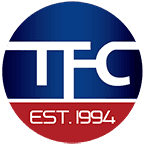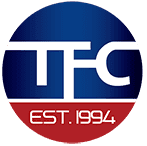Title loans provide borrowers with quick access to money by using their car as collateral. If you are considering getting a title loan in Utah, it is important to understand the rates and regulations that apply to these loans.
This article will go into the subject of title loan rates in Utah, examining the variables that affect them and the laws in place to safeguard borrowers.
All of the lenders that we partner with have the consumer finance lenders license, so you know that you will be working with a trustworthy lender.
Factors Affecting Utah Title Loan Rates
The interest rates charged by title loan lenders in Utah can vary based on several factors:
- Loan Amount: The value of the vehicle used as collateral determines the loan amount. Higher loan amounts may result in higher interest rates.
- Value of the Vehicle: The interest rate is significantly influenced by the vehicle’s make, model, age, and condition. Lenders consider these factors when determining the rate.
- Borrower’s Creditworthiness: While title loans typically do not require a credit check, borrowers with better credit may receive more favorable interest rates.
- Market Competition: Competition among title loan lenders can affect the interest rates they offer. Lenders may adjust rates to attract borrowers or maintain profitability.
FAQs About Title Loan Rates in Utah
What Are Title Loan Rates in Utah?
Title loan rates in Utah can vary, but they often have high-interest rates due to the short-term nature and risk involved. Rates can range from 25% to 300% APR.
How Are Title Loan Rates Determined?
Rates are determined based on factors like the lender’s policies, the loan amount, the value of your vehicle, and your creditworthiness.
Can I Negotiate Title Loan Rates in Utah?
Yes, some lenders may be open to negotiating the interest rate. It’s always worth asking if better terms are available.
Are There Any Caps on Title Loan Rates in Utah?
Utah does not have specific caps on title loan interest rates, which allows lenders to set high rates. It’s crucial to understand the total cost before agreeing to the loan.
How Does the Interest Rate Affect the Total Loan Cost?
The higher the interest rate, the more you will pay over the life of the loan. It’s important to calculate the total repayment amount before taking out a title loan.
Can I Refinance My Title Loan to Get a Better Rate?
Yes, refinancing your title loan with another lender may help you secure a lower interest rate. Ensure the new terms are more favorable before refinancing.
What Is the Typical Repayment Period for Title Loans in Utah?
Title loans are typically short-term, ranging from 30 days to a few months. The exact period will depend on the lender’s terms.
How Do I Compare Title Loan Rates from Different Lenders?
To compare rates, request quotes from multiple lenders, including the APR, fees, and repayment terms. Use this information to determine the best deal.
What Are the Risks of High-Interest Rates on Title Loans?
High-interest rates can lead to significant financial strain, making it difficult to repay the loan. This can result in additional fees or the risk of losing your vehicle.
Are There Alternatives to High-Interest Title Loans in Utah?
Yes, consider alternatives such as personal loans, borrowing from friends or family, or exploring local assistance programs to avoid high-interest title loans.
Expert Quote
“Understanding title loan rates in Utah is crucial for borrowers. High-interest rates can quickly add up, so it’s important to compare offers and consider alternatives before committing.” – Daniel Joelson, Consumer Finance Expert
Utah Title Loan Laws
Utah title loans has specific laws and regulations in place to protect borrowers from excessive interest rates and dishonest lending practices:
- Interest Rate Cap: Utah law caps the interest rate that title loan lenders can charge at 30% annually. Lenders are prohibited from charging rates above this cap.
- Fee Limitations: Lenders are not allowed to impose excessive or undisclosed fees. The loan agreement must provide a clear breakdown of all fees.
- Consumer Disclosure: Title loan providers in Utah must provide borrowers with a written contract detailing all terms and conditions of the loan, including the interest rate, repayment plan, and any additional fees.
Comparing Title Loan Rates
It is crucial to shop around and compare rates from different lenders before deciding on a title loan in Utah.
Borrowers can assess and compare interest rates, charges, and terms offered by various lenders to choose the best option.
This enables borrowers to select a lender that offers the most favorable rates and terms after conducting research and making an informed decision.
Seeking Legal Counsel
Borrowers with questions about title loan rates or who suspect unfair practices are encouraged to seek legal advice from a qualified expert in Utah title loan rates and laws.
An attorney can review loan agreements, provide advice on rate validity, and assist with addressing potential violations.
Conclusion: Title Loan Rates in Utah
For borrowers seeking immediate access to funds, understanding Utah title loan rates is essential. By considering variables like loan amount, vehicle value, creditworthiness, and market competition, borrowers can gain a better understanding of the rates offered by title loan lenders.
To ensure fair lending practices, it’s critical to be knowledgeable about Utah’s regulations, including fee and interest rate caps.
Additionally, comparing interest rates from various lenders and seeking legal counsel if needed can help borrowers make educated decisions and safeguard their financial security.
We are here to be your car title loan broker, we have the largest network of lenders, we will get you the money that you need, with affordable monthly payments.


